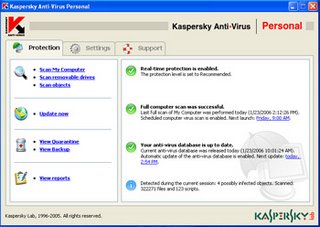Tutorials: html
Topic Description:
I decided to research the topic of html, because I feel this is an important aspect of web design, and it is something I am interested in. I know a little bit about the topic and have worked with some html within the past few years, but it is something I definitely wish to learn more about.
Available Tutorials:
I found tons of different tutorials available on the web. Some had videos that you had to pay for, but there were many available free ones.
1.) http://www.w3schools.com/ - This tutorial had a ton of different aspects of web design on it, all free. This was definitely one of the best ones I researched. The homepage made it easy to find exactly where you wanted to go and what you wanted to learn, as well if you wanted to learn from a beginning or advanced standpoint.
2.) http://www.htmlcenter.com/tutorials/index.cfm/main/ - This tutorial had many different aspects of web design on it as well as tutorals for programs such as Photoshop. You clicked on what you wanted to learn, and what part of it you want to learn. It was set up in an easy to locate manner as well.
3.) http://www.htmlgoodies.com/ - I did not like the setup of this page as much as the other pages. It seemed like it was trying to be too technical. However, I did like at the bottom of the page there was a discussion forum for people who had problems with something that they were learning on the site. It also seemed like it was updated often.
Evaluation:
I decided to do the first tutorial I listed. I liked the way it was set up. First I learned the reasoning for html, and what it is used for. There were examples that I could copy and paste to understand with. It answered many questions I had as I went along with the tutorial with a FAQ section. If the examples were not enough, there were links to even more examples. It divided the different parts up of html so it was very simple and easy for me to use. There were charts with different codes as well. I learned many different parts, and I focused on the basic sections because there really was a ton of information to learn. Something I concentrated on andI learned more about scripts, which was something that I did not know too much about. Overall, I found it to be pretty easy and I enjoyed learning more about a topic I was interested about.
I decided to research the topic of html, because I feel this is an important aspect of web design, and it is something I am interested in. I know a little bit about the topic and have worked with some html within the past few years, but it is something I definitely wish to learn more about.
Available Tutorials:
I found tons of different tutorials available on the web. Some had videos that you had to pay for, but there were many available free ones.
1.) http://www.w3schools.com/ - This tutorial had a ton of different aspects of web design on it, all free. This was definitely one of the best ones I researched. The homepage made it easy to find exactly where you wanted to go and what you wanted to learn, as well if you wanted to learn from a beginning or advanced standpoint.
2.) http://www.htmlcenter.com/tutorials/index.cfm/main/ - This tutorial had many different aspects of web design on it as well as tutorals for programs such as Photoshop. You clicked on what you wanted to learn, and what part of it you want to learn. It was set up in an easy to locate manner as well.
3.) http://www.htmlgoodies.com/ - I did not like the setup of this page as much as the other pages. It seemed like it was trying to be too technical. However, I did like at the bottom of the page there was a discussion forum for people who had problems with something that they were learning on the site. It also seemed like it was updated often.
Evaluation:
I decided to do the first tutorial I listed. I liked the way it was set up. First I learned the reasoning for html, and what it is used for. There were examples that I could copy and paste to understand with. It answered many questions I had as I went along with the tutorial with a FAQ section. If the examples were not enough, there were links to even more examples. It divided the different parts up of html so it was very simple and easy for me to use. There were charts with different codes as well. I learned many different parts, and I focused on the basic sections because there really was a ton of information to learn. Something I concentrated on andI learned more about scripts, which was something that I did not know too much about. Overall, I found it to be pretty easy and I enjoyed learning more about a topic I was interested about.





